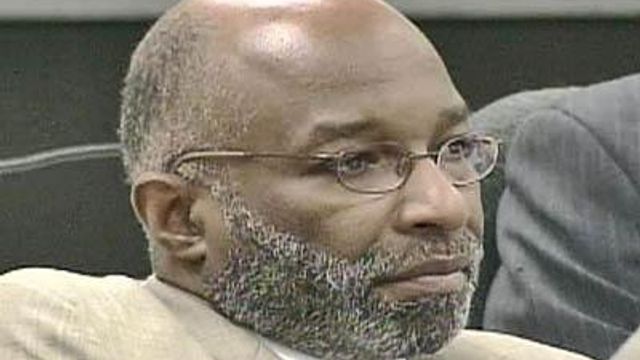Defense: Wright Ethics Hearing 'Jim Crow Proceeding'
The Legislative Ethics Panel considering ethical misconduct allegations against state Rep. Thomas Wright is racially biased, Wright's attorney argued Monday.
Posted — UpdatedAttorney Douglas Harris made the claim on the first day of hearings into allegations that Wright mishandled more than $350,000 in campaign contributions, loans and charitable donations.
Wright, an eight-term Democrat from Wilmington, is black. Harris argued that his hearing was being handled differently than a hearing last year against state Rep. Pryor Gibson, a white lawmaker from Anson County.
That allegation, which involved a procedural matter over the filing of a bill, was dismissed.
"What we have here is a white man being treated one way and a black man being treated another," Harris said, calling the hearing "a Jim Crow proceeding."
After some tense exchanges with Harris, Committee Chairman Rep. Rick Glazier, D-Cumberland, allowed the hearing to go forward but said he would consider Harris' motion if it were put in writing.
The ethics panel in January found probably cause to proceed against Wright on eight allegations of misconduct related to the following:
- $185,000 in campaign donations authorities said were not reported
- allegations that the lawmaker used his position to influence a state official to write a letter to help him obtain a $150,000 loan for a real estate deal in Wilmington
- accusations that he diverted almost $19,000 in contributions and loans into his personal accounts when they were supposed to go to a nonprofit organization he directs
"Thomas Wright engaged in a pattern of improper, unethical, and criminal conduct," Deputy Attorney General Bill Hart said as he presented evidence against Wright.
Torlen Wade, a former state Department of Health and Human Services program director, testified that, under pressure from Wright, he wrote a bogus letter in 2002 to help Wright obtain a $150,000 loan for his nonprofit. Wade said he promised in the letter that state money was committed for a museum Wright wanted to establish when it wasn't.
"I thought it was no foul, no harm. No harm, no foul," Wade said.
The committee decided Monday to delay moving forward on one allegation involving a $9,910 loan Wright received from a credit union for his nonprofit. Lawmakers said they wanted more information on the allegation.
The ethics committee could recommend that the full House vote to censure or expel Wright. The General Assembly hasn't removed a lawmaker since the 1880s.
Wright has refused to resign, saying voters should determine if he remains in office. Last week, he filed for re-election.
He also has been indicted on five counts of obtaining property by false pretense and one count of obstruction of justice in connection with the campaign contributions, loans and charitable money. His trial was scheduled to start Monday, but a judge last week delayed the case to give Harris more time to prepare a defense.
• Credits
Copyright 2024 by Capitol Broadcasting Company. All rights reserved. This material may not be published, broadcast, rewritten or redistributed.





